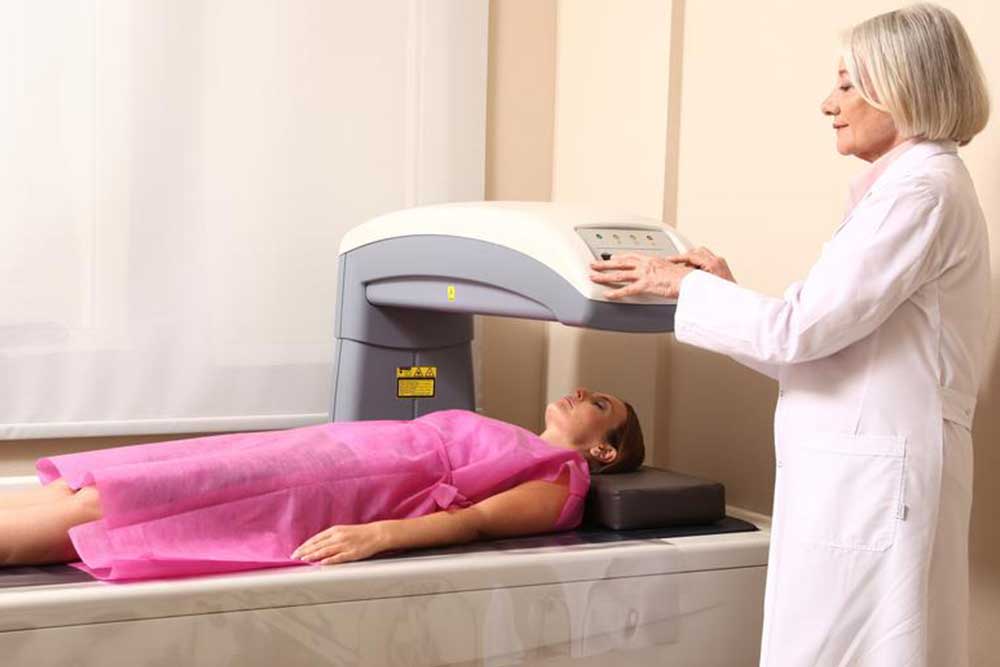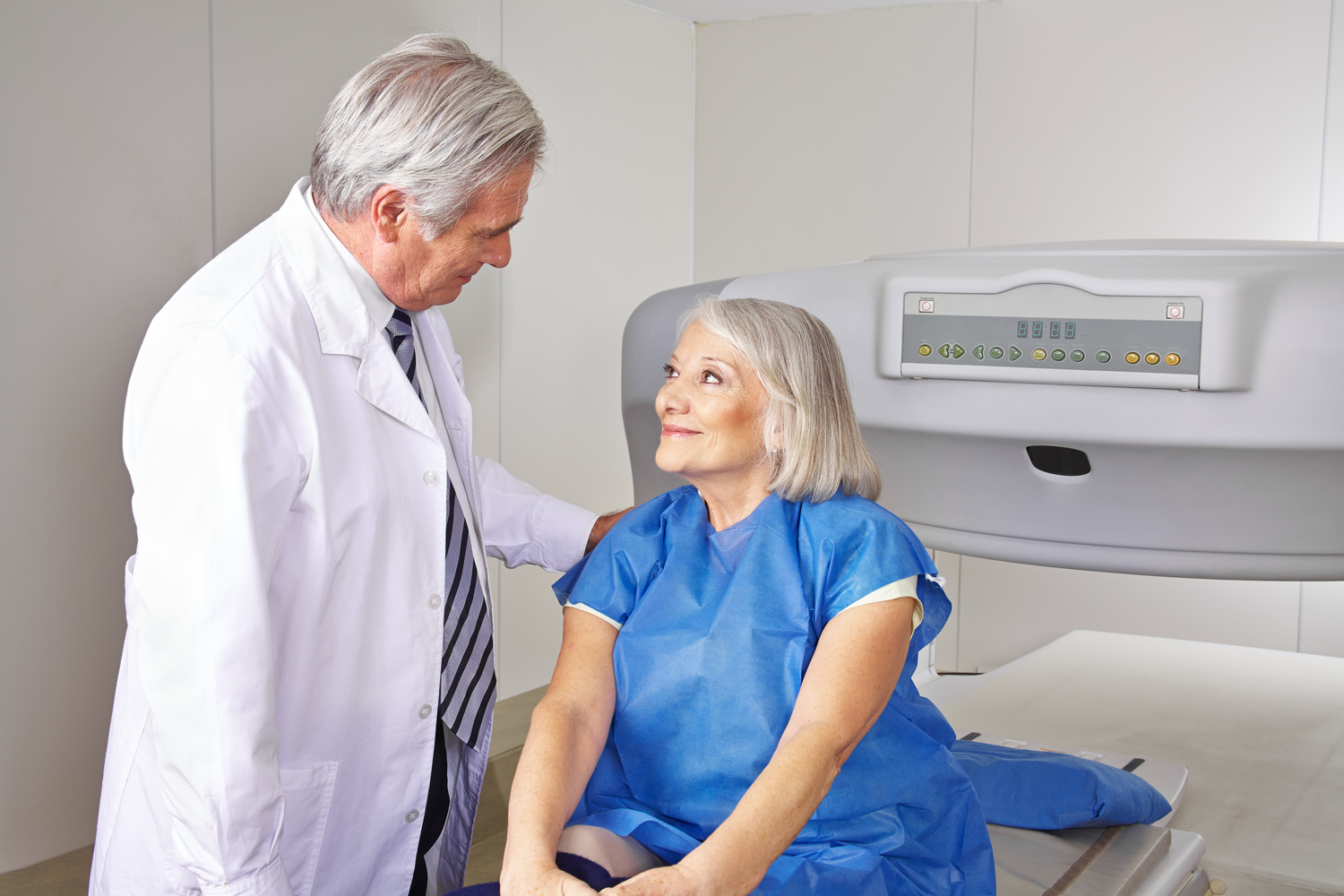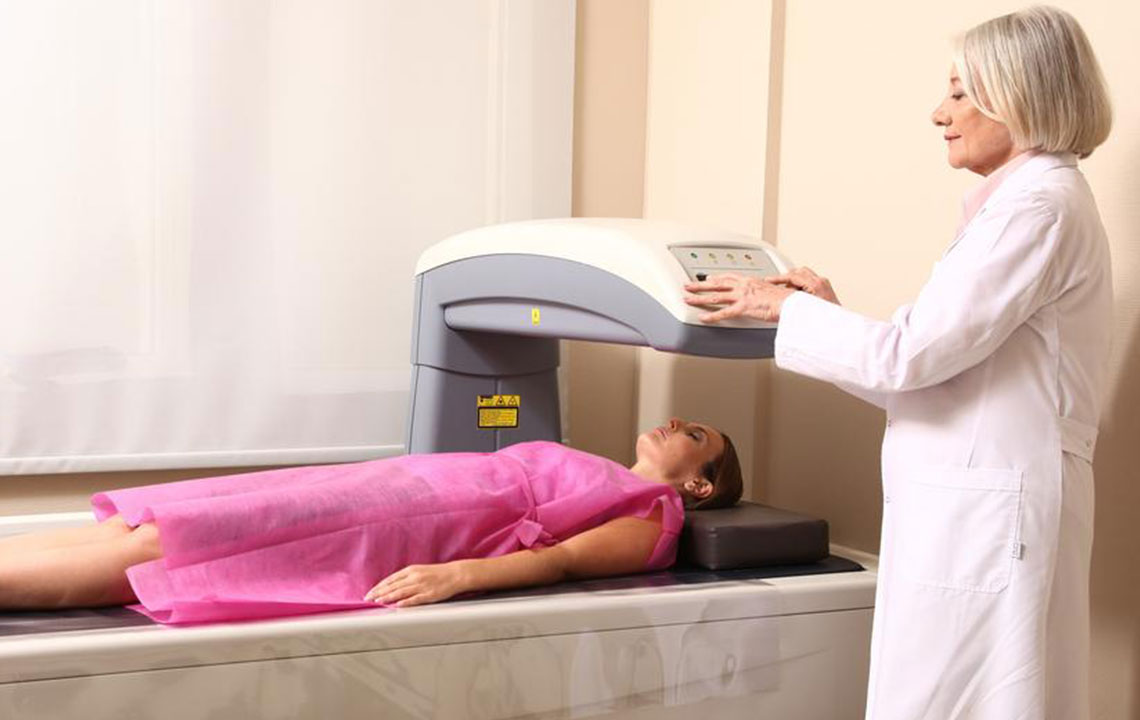All You Need to Know About Bone Density Tests
Bone density or bone mineral density is an indicator of the strength of your bones. A bone mineral density (BMD) test evaluates how strong your bones are. The U.S. Preventive Services Task Force recommends that women aged 65 and above and younger women susceptible to fractures should undergo BMD tests. While there’s no data about the relevance of these tests for men, it’s recommended that men aged 70 years and above undergo a BMD test.

What is a bone density test?
Bone density tests measure the amount of minerals (like calcium) present in your bones. There are multiple methods of conducting bone density tests. Dual-energy-absorptiometry (DEXA) scan is the most common and precise way of measuring bone mineral density. It employs low-dose X-rays to measure bone density. Central and Peripheral DEXA are two types of DEXA scans. The Central DEXA measures bone density of the lower spine and hip bones while Peripheral DEXA measures the bone density of one’s wrists, legs, heels, and finger bones.
24 hours before the test, one should abstain from taking calcium supplements. People must also remove all metal items from their body. The scan is painless and non-invasive. One can get to know the following factors through bone density tests:
- Bone loss, wear and tear
- Osteoporosis and impact of medication for osteoporosis
- Evaluate the risk of bone fractures
The bone density test results are re-expressed as T-score, which compares measured density with that of a healthy young woman, and Z-score, which compares one’s bone density with other people of the same age, race, and gender. A negative T-score or Z-score indicates thinner and weaker bones than average. A higher negative score indicates a higher risk of bone fractures.
How often should you get your bone density checked?
Older women prone to osteoporosis and bone loss are recommended to undergo a bone density test once they cross the age of 65 years. The recommended frequency of repeating these tests varies from 2 years to 15 years. Your physician will recommend the frequency of undergoing this test based on your medical and family history, bone strength, and other related medical conditions.
Conclusion
Women aged 65 and above, younger women on steroid medication or patients who have undergone organ or bone marrow transplant, or those with fluctuating hormone levels are ideal candidates for bone density tests.




